-
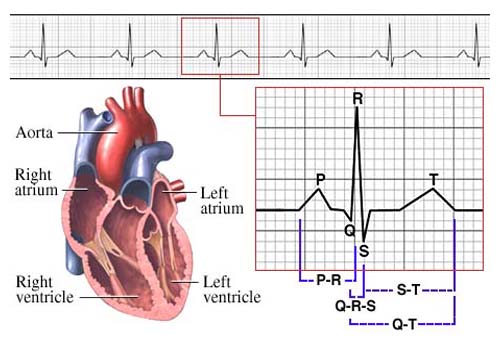
What is an electrocardiogram?
An electrocardiogram, also called an ECG, is a record of the electrical activity of the heart. The electrical impulses are recorded by placing leads on different parts of the body. It is a diagnostic procedure to detect any abnormality of rhythm or disease of the heart.
-
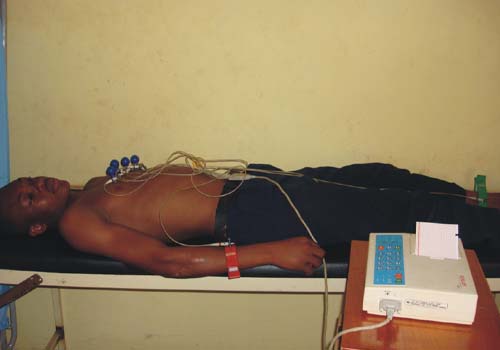
How to prepare for an ECG?
No special preparation is necessary unless special instructions are given by the doctor. Loose clothes are advisable as the electrodes have to be placed on the limbs and the chest.
-
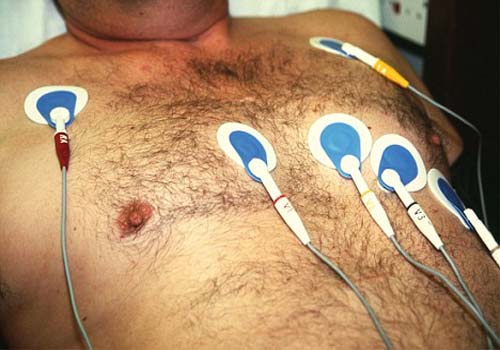
What happens during the ECG?
It is a simple, painless procedure. Small disks or suction cups, made of metal or plastic, are attached to the chest, wrists, and ankles. The disks have electrodes which are connected to a machine that records electrical impulses of the heart and gives a tracing on paper. Any abnormalities of the heart’s electrical activity at rest, can be diagnosed easily by reading the paper tracing. A continuous recording of the ECG over 24 to 48 hours during normal activity can be done by a lightweight portable machine called a Holter monitor.
-
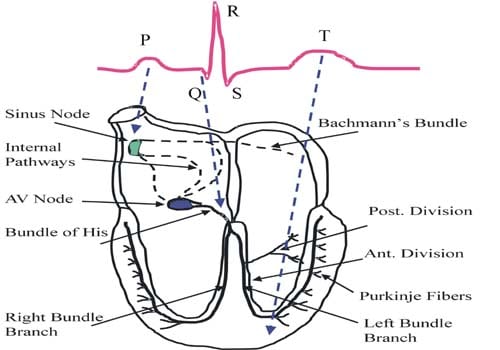
Why is it done?
It is useful in detecting a heart attack, angina, disorders of heart rhythm (arrhythmias) like heart block, fibrillation (very fast abnormal heart rhythm) or tachycardia (fast heart beat), etc.
-
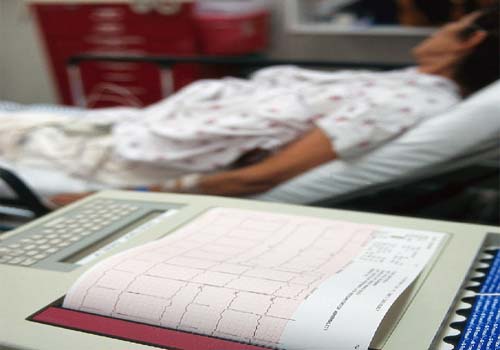
Are there any limitations of this procedure?
There are no obvious risks. But sometimes the ECG may not show any abnormality in the early stages of a heart problem. So it may give a false negative report of the ECG.


















